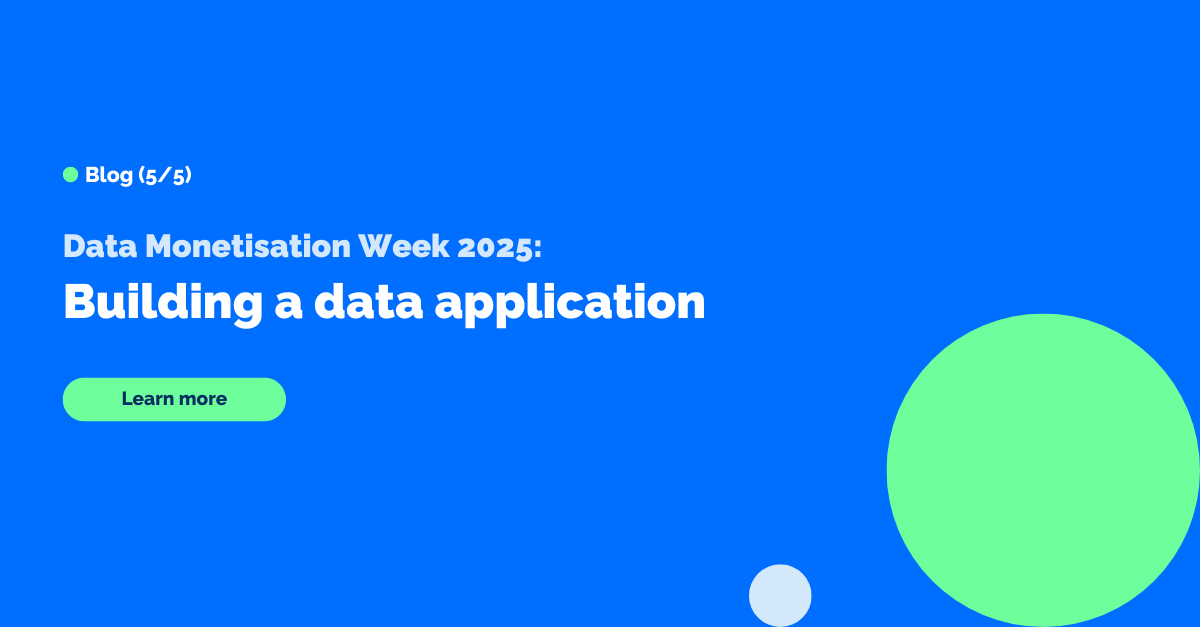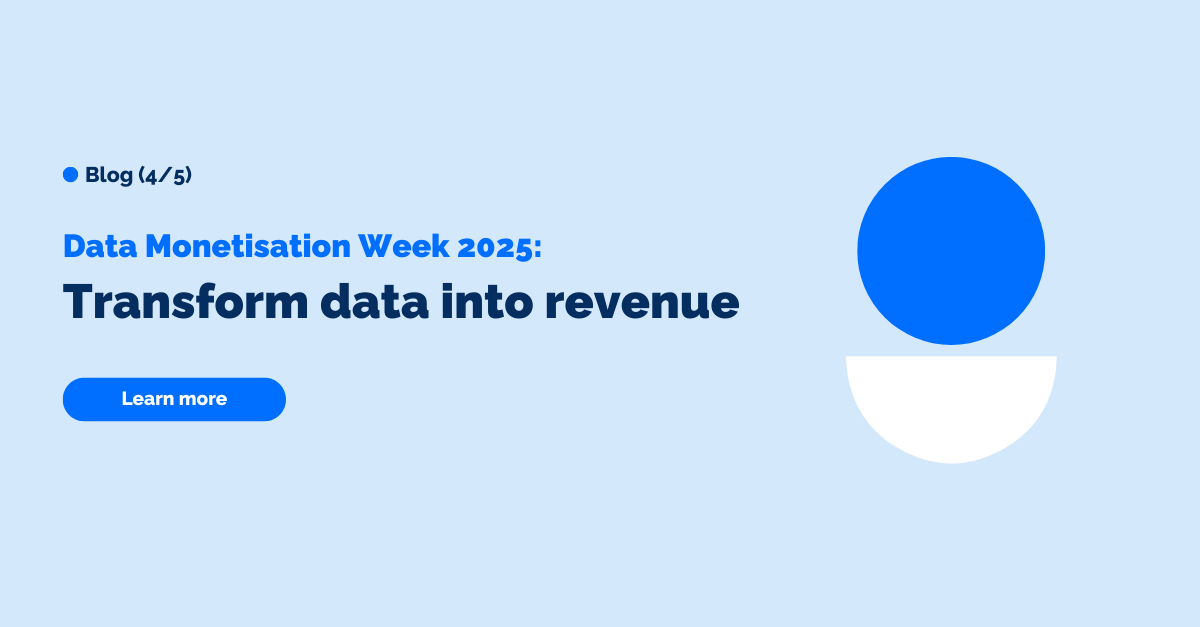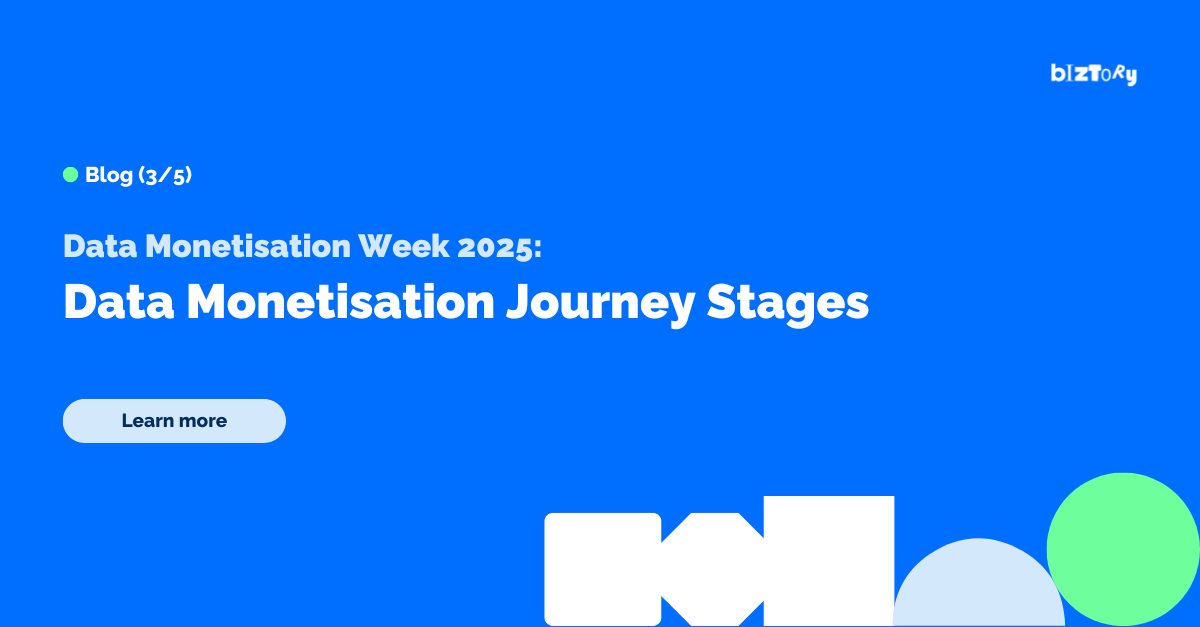We’ve all heard the phrases before: “Data is the new gold”, or “data is the new oil”. Sometimes, with the overload of information these days, data is even referred to as “the new plastic”. Whatever way you’d describe it, the simple fact is that data will only become more prominent and important in our daily lives and flows of work. Especially with the AI revolution that is unfolding today. AI use cases, however, are not the only way to turn data into action for your business. Turning data into new revenue streams through data monetisation is another upcoming trend in the data analytics industry. In fact, it is expected that the market for data monetisation will grow to $16.98 billion by 2031 - which is massive.
This week, we’ll take a deeper look at what data monetisation is, and how you can jump on the data-monetisation-train with your business.
Day 1: What is Data Monetisation?
Day 2: Data Monetisation use cases
Day 3: The 4 stages of Data Monetisation
No time to read? Listen to the podcast instead.
What is Data Monetisation?
In its most basic form, data monetisation is the process of turning data into monetary value or economic benefits. So data goes out, money comes in - that’s the idea. What that process exactly looks like, can vary depending on the use case or data monetisation model.
Another way to look at it would simply be “value realisation”. In some cases, the term data monetisation might cause confusion that it is solely based on generating revenue from data - when in reality, using data to lower costs and optimise operational efficiencies can also be considered as examples of data monetisation.
Why monetise your data?
So, now that you know what data monetisation is, let’s look at some of the reasons why companies are investing heavily in their data monetisation strategy.
In general, there are several key reasons why companies are taking the leap:
Revenue generation: Monetising data through selling data or insights derived from data can obviously create new revenue streams for companies.
Enhanced product offerings: By analysing their data, companies can improve existing products or services, develop new ones, or customise offerings to better meet customer needs. This indirect monetization boosts the company's competitiveness and market share.
Cost Reduction: Data can be used to optimise operations, reduce waste, and streamline processes, leading to significant cost savings. These efficiencies often translate into better margins and profitability.
Customer insights: Data helps companies understand customer behaviours, preferences, and trends. This knowledge allows for targeted marketing, improved customer engagement, and ultimately, higher customer satisfaction and retention.
Strategic Decision Making: Robust data analytics empower companies to make more informed decisions by predicting market trends, assessing risks, and identifying new opportunities.
Partnerships and Collaboration: Sharing or selling data can lead to strategic alliances with other firms, fostering innovation and opening new markets.
Regulatory Compliance and Risk Management: Sharing or selling data can lead to strategic alliances with other firms, fostering innovation and opening new markets.
Conclusion
In conclusion, the adage "data is the new gold" could not be more relevant in today's rapidly advancing technological landscape. As we explore the multifaceted opportunities of data monetization, it is clear that harnessing the power of data is not just about generating revenue; it's about catalysing a transformative shift in how businesses operate, innovate, and deliver value to customers. From enhancing product offerings to optimising operations and driving strategic decisions, the benefits of data monetization are pervasive and potent. As the market continues to burgeon towards a projected $16.98 billion by 2031, now is the opportune time for businesses to board the data-monetization train.
This week's series will equip you with the knowledge and strategies to effectively tap into this potential, ensuring that your business not only keeps pace but excels in the evolving digital economy. Stay tuned as we delve deeper into turning data into actionable, profitable outcomes.




